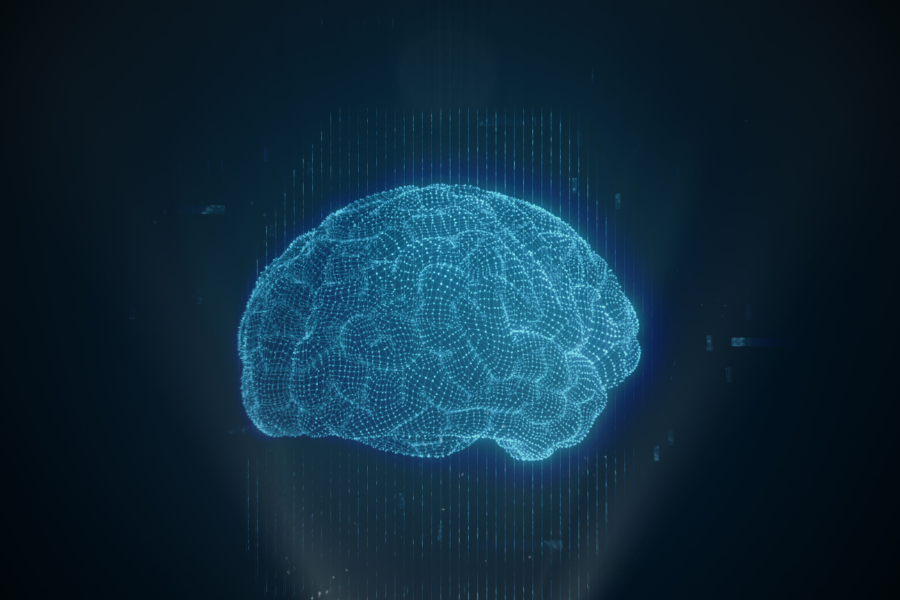Alzheimer’s Disease (AD) stands as the most common neurodegenerative ailment impacting the elderly. It’s a highly debilitating condition without a known cure. Yet, there’s a glimmer of hope in the realm of treating this formidable illness, and it lies in peptide research. One particular peptide, Cerebrolysin, holds promise in this regard, as detailed later in this article.
Cerebrolysin therapy utilizes low molecular weight peptides that can easily traverse the blood-brain barrier, directly reaching brain neurons. Cerebrolysin has shown efficacy in aiding recovery from various conditions such as strokes, dementia, depression, traumatic brain injury, ADHD, and Alzheimer’s disease. Let’s learn more about this powerful cognitive peptide.
What Is Cerebrolysin?
Cerebrolysin is a synthetic nootropic drug derived from the brains of pigs. It is comprised of low-molecular peptides, possessing neuroprotective and neurotrophic repair properties. Its active fragment consists of proteins with very low molecular masses, allowing them to penetrate the blood-brain barrier and directly reach neurons. This brain-boosting capacity is primarily attributed to the neuropeptides present in Cerebrolysin. These neuropeptides are active chains of amino acids utilized by nerve cells (neurons) to bolster communication between them.
With neurotrophic action similar to nerve growth factors, Cerebrolysin stimulates both peripheral and central neurons, enhancing efficiency in the brain’s aerobic metabolic processes and intracellular peptide synthesis.
Its neuroprotective properties shield neurons from lactocidosis, preventing the formation of free radicals. Cerebrolysin has been utilized in treating conditions such as stroke, traumatic brain injury, dementia, and Alzheimer’s disease.
How Does It Work
Cerebrolysin penetrates the blood-brain barrier and impacts neurovascular tissues by modifying two significant signaling pathways: the neurotrophic factor (NTF) and the sonic hedgehog (SHH) signaling pathway. At a molecular level, these pathways oversee a range of cellular processes including cell differentiation, neuronal survival, nerve cell function, protection, and repair. Additionally, Cerebrolysin promotes the generation of new synapses and neurogenesis in the dentate gyrus, a brain region crucial for learning and memory.
Benefits of Cerebrolysin
Several small clinical trials have indicated that Cerebrolysin may enhance cognitive function in older individuals experiencing memory issues and in those diagnosed with schizophrenia, although the improvements observed are modest. For instance, in a trial involving schizophrenia patients, Cerebrolysin treatment was associated with improved cognition and memory. Similarly, a trial focusing on older adults with memory decline found that a peptide formulation derived from Cerebrolysin led to enhanced memory performance, although it did not significantly impact verbal fluency. However, the effect on memory was noted to be less pronounced compared to currently approved medications for Alzheimer’s disease. Additionally, an uncontrolled clinical trial noted that healthy elderly individuals exhibited improved memory performance following a single dose of Cerebrolysin, but this outcome may have been influenced by the placebo effect.
Despite these findings, there have been no clinical studies investigating whether Cerebrolysin can prevent dementia. Nonetheless, some preclinical research suggests the possibility. Preclinical studies have shown that Cerebrolysin can protect neurons and brain tissue from damage, reduce inflammation, facilitate the formation of new neural connections (synapses), mitigate cognitive decline, and decrease the presence of plaques and tangles commonly observed in Alzheimer’s patients. However, whether these effects translate to humans remains uncertain.
Alzheimer’s, Depression and ADHD
Cerebrolysin has been found to elevate brain levels of beta-amyloid deposits, which are associated with Alzheimer’s disease. A review of 15 clinical trials involving 2,446 participants revealed that high doses of this drug reduced psychological symptoms and slowed disease progression in individuals diagnosed with Alzheimer’s disease and dementia.
Moreover, a combination of cerebrolysin with antidepressants was shown to be more effective in alleviating symptoms in patients with treatment-resistant depression compared to antidepressants alone.
Lastly, in a study involving 60 children diagnosed with ADHD, cerebrolysin improved symptoms in 70 to 86% of the subjects.
Traumatic Brain Injury
Cerebrolysin demonstrates positive effects even in patients experiencing severe disability following a traumatic brain injury (TBI). In a cohort study involving individuals with severe disability one-month post-TBI, the administration of 10 mL of Cerebrolysin daily for 30 days resulted in a lower mortality rate and improved recovery after six months of treatment.
Dementia
The 2019 Cochrane Review on Cerebrolysin in vascular dementia, which analyzed six studies involving a total of 597 individuals with the condition, highlights its positive impact on memory and cognition without any reported side effects. However, the review cautions that the findings are not conclusive due to potential limitations in the studies, which could have influenced the results inaccurately. Therefore, a larger-scale study is required for a more definitive understanding.
Cerebrolysin Side Effects
The side effects of Cerebrolysin are generally mild and temporary, with most people tolerating the treatment well. These side effects may include:
- Headache or dizziness
- Insomnia
- Sweating
- Weight loss
- Anxiety
- Fatigue
- Flu-like symptoms
- Diarrhea
- Nausea
It’s also worth noting that Cerebrolysin is not yet FDA-approved for use in the United States, although various studies and clinical trials from all around the world are showing positive results.
How To Use Cerebrolysin
Cerebrolysin is not approved for the treatment of any medical condition in the United States. While it is occasionally marketed for oral use, peptides like those found in Cerebrolysin are typically broken down in the gastrointestinal tract and are therefore ineffective when taken orally. Instead, Cerebrolysin is administered via injection.
In clinical trials, intravenous doses of 30 ml per day over a four-week period have shown some positive outcomes, although higher doses may not necessarily yield better results. It’s important to note that the content and concentration of Cerebrolysin may vary depending on the manufacturer and batch.
Conclusion
Cerebrolysin is being explored as a prospective therapeutic agent for neurodegenerative illnesses, including Alzheimer’s disease (AD), traumatic brain injury (TBI), dementia, depression, and attention deficit hyperactivity disorder. Cerebrolysin, derived from pigs’ brain tissue, comprises low-molecular-weight peptides that can cross the blood-brain barrier and directly target neurons, resulting in neuroprotective and neurotrophic effects.
While clinical trials and studies worldwide have shown positive outcomes, further research, particularly larger-scale studies, is necessary to establish the safety and efficacy of Cerebrolysin across various neurological conditions. Nonetheless, Cerebrolysin offers a glimmer of hope in the treatment of neurodegenerative diseases and could easily become a breakthrough in the field of peptide-based therapeutics.
FAQ
Does Cerebrolysin Increase IQ?
Cerebrolysin may improve cognitive function and memory, however, it’s not certain whether or not you’ll perform better on an IQ test.
Does Cerebrolysin Increase Dopamine?
Cerebrolysin does not directly increase dopamine levels in the brain. While it contains peptides and other components that may have neurotrophic and neuroprotective effects, there is no evidence to suggest that it directly influences dopamine production or release.
Does Cerebrolysin Affect the Kidneys?
There is limited evidence to suggest that Cerebrolysin may have an impact on kidney function. Some studies have reported adverse effects such as proteinuria (presence of protein in urine) and renal impairment in individuals receiving Cerebrolysin therapy, particularly at higher doses or with prolonged use.
Can Cerebrolysin Cause Seizures?
Yes, Cerebrolysin has been associated with an increased risk of seizures, particularly when administered at higher doses or in individuals with a predisposition to seizures.
Get Started, Book a Free Consultation
Book a free 20-minute consultation to learn more about how this peptide can help you.



